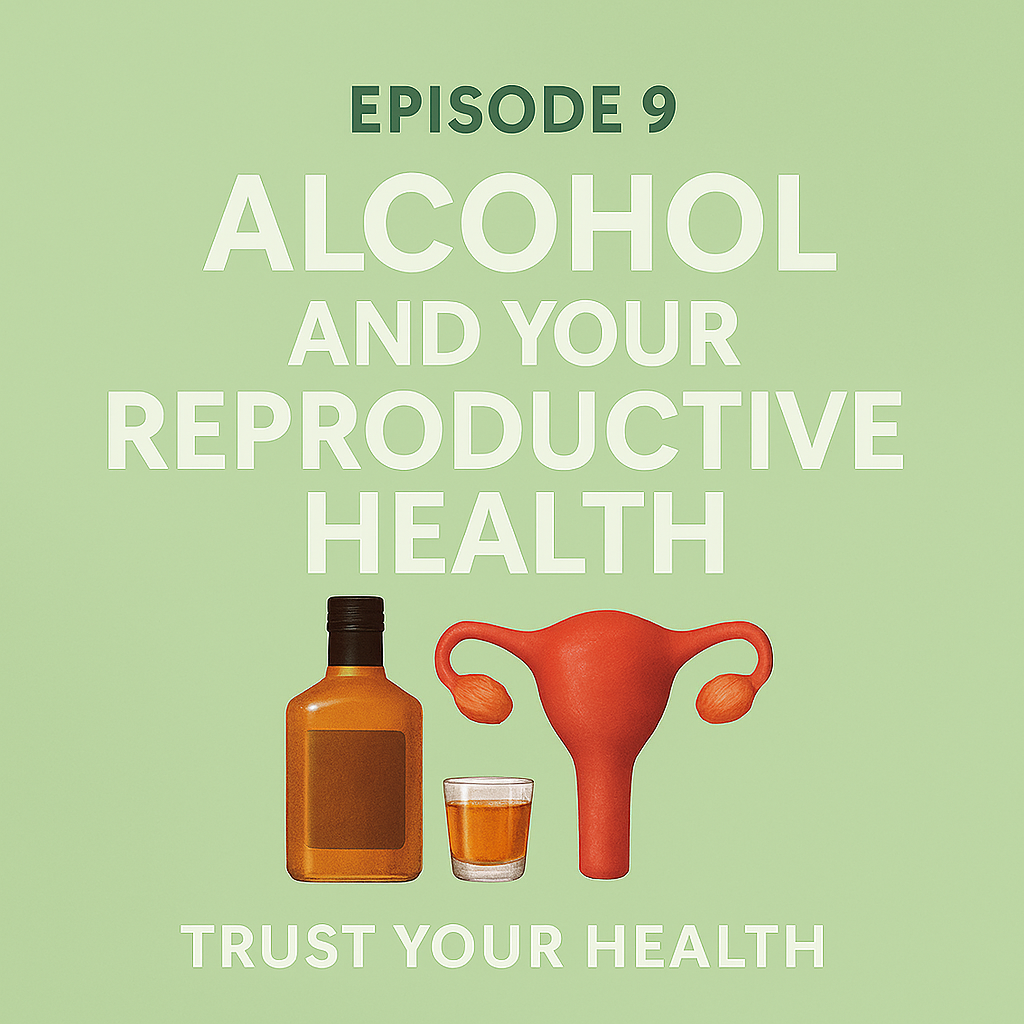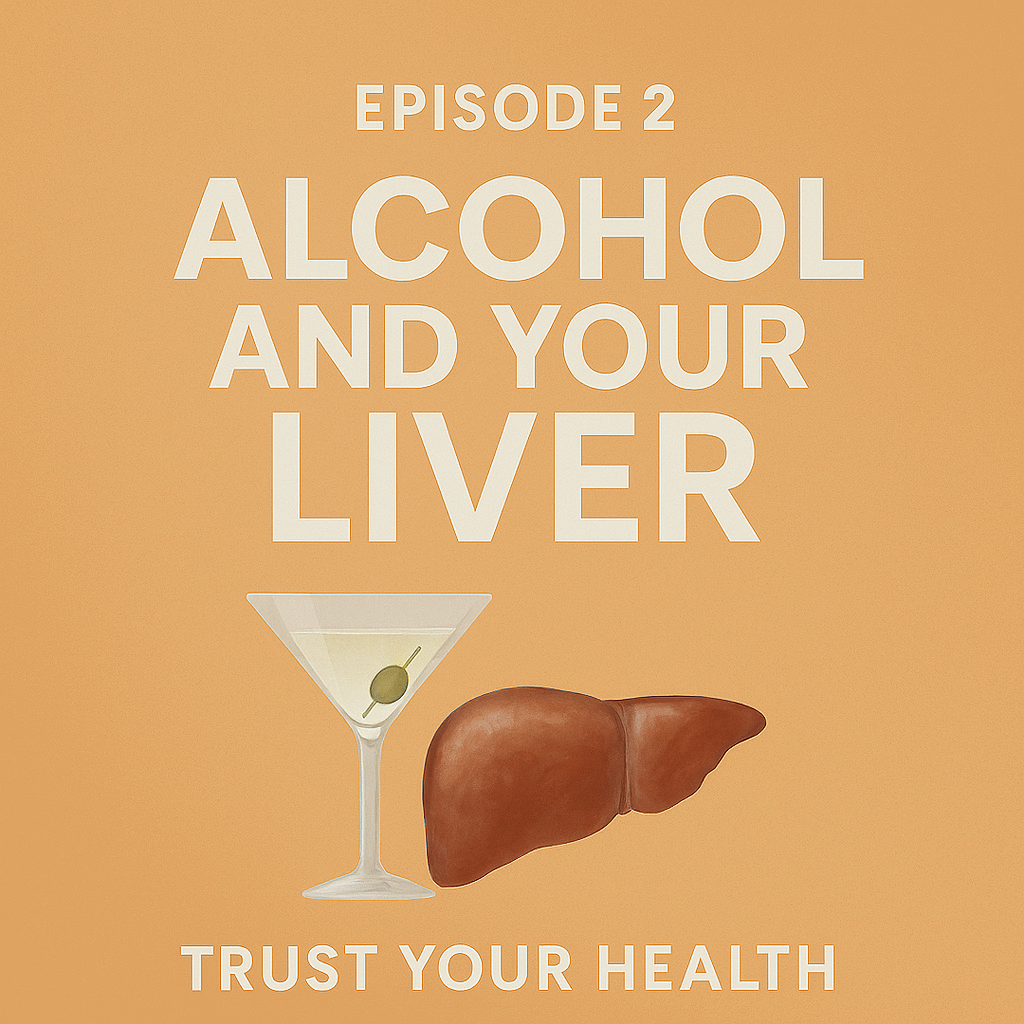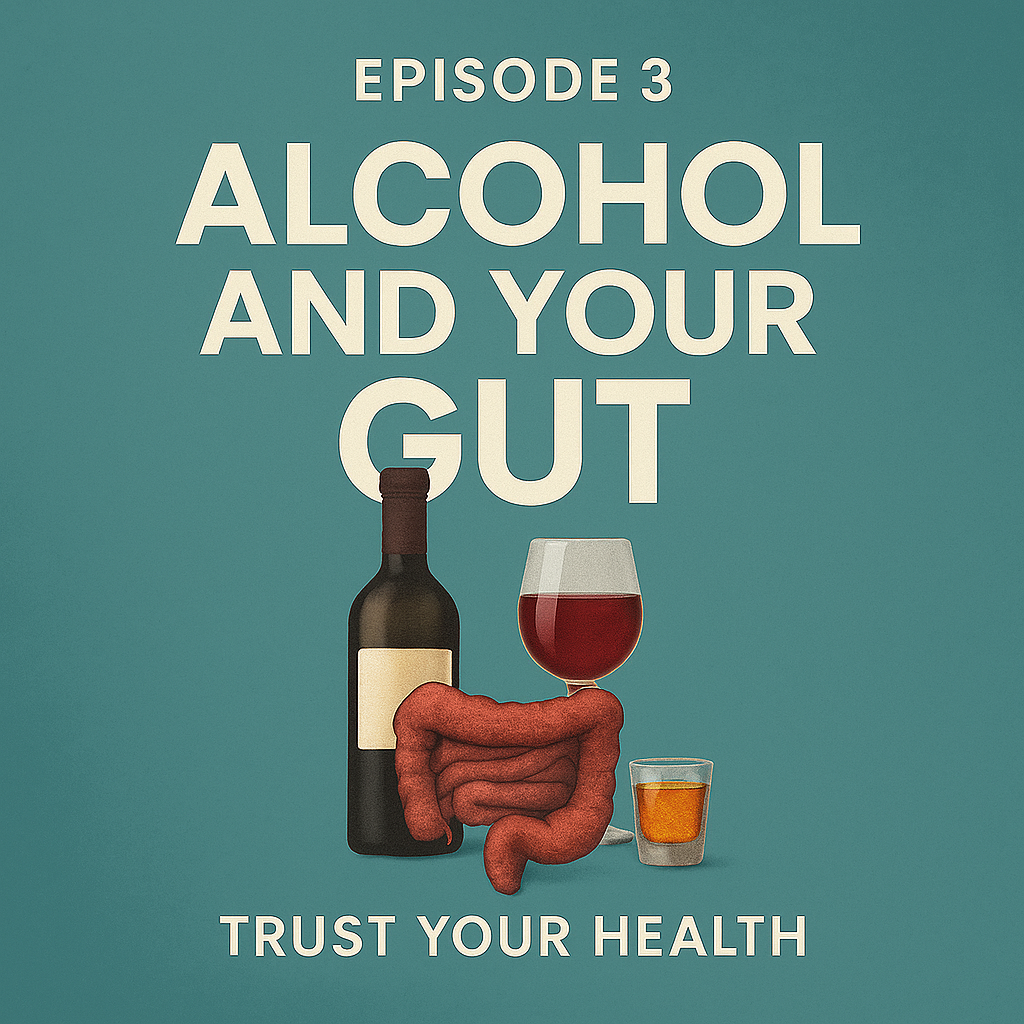Episode Transcript
After everything we’ve covered about alcohol — how it affects your liver, your gut, your brain, your heart, your pancreas, your immune system, and your reproductive health — one big question still remains.
How much is too much?
In this episode of Trust Your Health, we’re cutting through the confusion and helping you build a personal approach to drinking — based on what your own body is already trying to tell you.
Let’s start with the guidelines.
For decades, health organizations have recommended what they call “moderate drinking.” For women, that means up to one drink per day. For men, up to two. And no — you can’t save them up for the weekend.
But recent research makes it clear: even moderate drinking carries health risks. And no amount of alcohol is actually good for you.
So how much is too much?
The truth is, the most reliable way to know is to listen to your own body.
Pay close attention to how you feel after drinking. Two of the most obvious signs that alcohol is already hurting you show up in your gut and your sleep.
If you’re having frequent diarrhea after drinking… if your stools are loose, greasy, or unusually light in color… if you feel bloated, crampy, or have stomach pain the next day… that’s your body telling you it’s overwhelmed.
And if you wake up in the middle of the night, toss and turn, or feel exhausted and foggy the next morning even after a full night in bed — that’s alcohol disrupting your sleep cycles. You may fall asleep faster, but the quality of your sleep is worse, leaving you more tired and less refreshed.
These gut and sleep symptoms are often the first clear warnings that alcohol is already taking its toll. You don’t need a doctor or a lab test to tell you you’ve had too much — your body is already speaking to you.
Beyond digestion and sleep, also pay attention to your energy, your mood, and your blood pressure. Alcohol affects every system — but your gut and your sleep are usually the first to show it.
So here’s how to build your own approach.
First — be honest with yourself. Track what you actually drink each week. Not what you think you drink — what you actually pour.
Second — watch your symptoms. If your gut, your sleep, your energy, or your mood feel worse after drinking, that’s your signal to cut back.
Third — set limits you can live with. Maybe no more than one drink at social events. Or alcohol-free weekdays. Or even stopping for a month to see how much better you feel.
And finally — don’t buy into the idea that drinking is the only way to relax, connect, or have fun. You’re allowed to say no.
The truth is, the less you drink, the better off your body will be — and the sooner you’ll feel the benefits.
You don’t have to wait until a doctor tells you to stop. You can make the decision now. And your gut, your sleep — and your whole body — will thank you for it.
This wraps up our series on alcohol. In our next series, we’ll take on another everyday substance that affects almost everyone: caffeine — and what it’s really doing to your body.
Thanks for listening to Trust Your Health. Because trusting your health begins by understanding your body.
Be sure to follow the podcast so whenever you need clear, honest advice about your body, we’ll be here to help you make sense of it.


